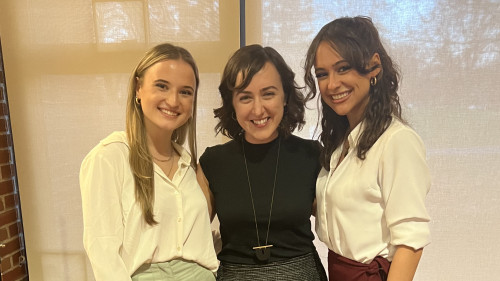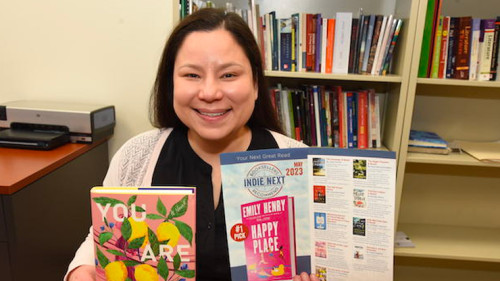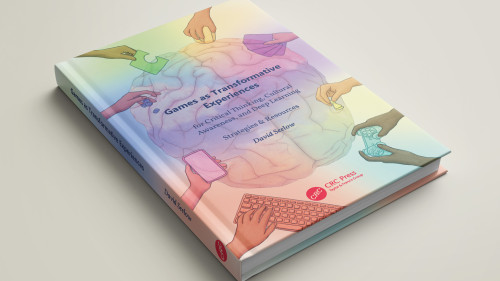
By writing poetry, we form reality.
That’s what James Belflower, Ph.D., teaching assistant professor of English, tells his students. What forms, though, does that reality take? That very question is explored in his course “Linguistic Architecture: Histories of Poetic Form” (ENGL 259). Poetic form from the ancient past to the present is explored, capped off by a final project writing and recording 15-minute scripts that are then broadcast on Siena radio station WVCR “The Saint.”
“Students can choose the experimental poetic forms that are meaningful to them and really do a deep dive in terms of analysis and close reading,” said Belflower. “Many people who are new to poetry tend to think in terms of traditional form that has a rhyme and meter, but what does it mean when a poem does not have an A-B-A rhyme pattern?”
He said that poetry can be “initially terrifying” when first explored, but students come to see that it can “actually be really wonderful once they learn about it.”
Most of the students in this class are not English majors and do not regularly study creative writing. So, learning enough about their chosen experimental form that they can script and publicly broadcast a segment about it requires some bravery and openness to explore form and meaning, whether reading ancient Persian texts or modern-day hip-hop. The class looks at how forms differ, constrain, do political work, cross boundaries and more.
The students’ segments are produced for the radio show In Form, which is now in its fourth season and broadcast on WVCR 88.3 FM, Thursdays at 10pm. Belflower’s fall semester students recorded and edited their segments last December for broadcast this spring.
“In Form gives listeners insider access to conversations on poetic formal histories, the visible and invisible architectures of poetry, and the ways in which poetic form uniquely operates on our attention leading to fresh encounters with language and communication,” he explained.
“The radio show brought an individual responsibility to class materials that I felt helped me retain it. It was such an interactive course each day, encouraging a lot of us to come out of educational hibernation following so many years of hybrid learning. I loved it!”
Delia McDade Clay ’23
“I feel very lucky to have been able to learn so much about something I wrongfully assumed was mundane."
Nora Diede ’24

